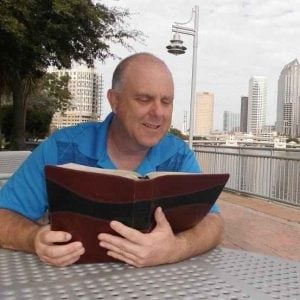Trust No One!
Were you ever told that we only use 10% of our brain? I remember being told growing up that we only use 10% of our brain, but Einstein used 33% of his brain. I am not sure if this information was passed on to us as a way to encourage us to think harder in school, or as an insinuation that our minds had mysterious capabilities such as ESP, if only we could tap into the 90% of our brain we are not using. I have no doubt that the people who told me that really believed it. After all I am sure they heard it from a trusted friend who heard it from a trusted friend who heard it from a trusted friend. I know I shared that information with some of my students because I was sure my sources were reliable. Well they may have been mostly reliable, but not 100% reliable. You see, we do use our entire brain.
Brain scans and other tests reveal that we use our entire brain. The idea that we don’t use our entire brain came from a study where mice could still do certain functions after having small amounts of brain matter removed. You can read about it here. It turns out that the idea that we only use 10% of our brains is a total myth. Now that I think about it, I could have figured out as a kid that we use our entire brain if I had been using my brain. (Pun intended.) They myth that we only use 10% of our brains has endured for ages because we are prone to believe what we are told by trusted people instead of using our own minds to figure things out.
I am reminded of a time many years ago when I lived in Tulsa, Oklahoma. I had a friend, Anne, who was a flight instructor at the Spartan Flight School in Tulsa. One Saturday night, she and I decided to rent a small Cessna 152 and take an aerial tour of the city. While they were fueling the plane, Anne was checking all the gauges to make sure all systems were good to go. When she got to the fuel gauge she said, “Fuel gauge reads full.”
I joked that since we just watched them fueling the plane, there was no need to check the fuel gauge. Her reply has always stuck with me. “Trust no one,” she said. She was right. As the pilot of our little aircraft, it was her personal responsibility to check all the gauges, including the fuel gauge. It was not disrespectful for her to check to make sure the “pit crew” had done their job. It was her responsibility to check things out for herself.

I love studying my Bible near the bay or gulf in the beautiful Tampa Bay area.
We all have that responsibility as Christians. Paul was not offended at all that the Bereans checked out his preaching to see if it went along with the Scriptures. “Now the Berean Jews were of more noble character than those in Thessalonica, for they received the message with great eagerness and examined the Scriptures every day to see if what Paul said was true.” Acts 17:11 NIV Everyone knew Paul was sincere, but we are all human, right? We can make sincere mistakes.
As Seventh-day Adventists, we tell our Protestant and Catholic friends that they need to read the Bible for themselves, and not take their preacher’s word for it. But how many of us turn around and think, My pastor is an Adventist so I know he is preaching truth?
Friends, if the people searched the Scriptures to see if what Paul said was so, how much more should we be searching the Scriptures to see if what our pastor says is so. By the way, notice they searched the Scriptures to see if what Paul said was true. They did not simply read along with Paul. Many people read along in the Bible with the pastor as he preaches at church or even on TV. But just because a pastor is Adventist or on TV does not make him infallible. Instead of just reading along with a famous TV evangelist, Adventist or not, we need to search the Scriptures on our own to see if those things they teach are true.
We are all human. We all make mistakes. Making a sincere mistake does not make you a heretic. It does not mean you are a part of a global sinister conspiracy plot. It just means we are all human. We can’t rely on man alone. Like my friend Anne, who checked out things for herself, we must, along with the Bereans, search the Scriptures for ourselves, so that we can each know individually what is true.
You may listen to the podcast version here.
